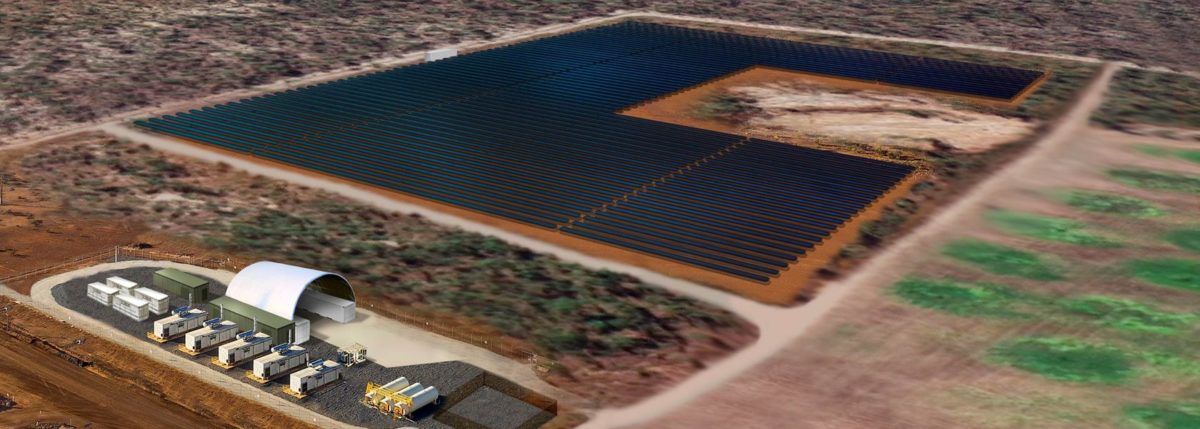As the Ranger Uranium Mine continues its decommissioning, the Northern Territory Labor Government’s Master Plan for revitalising the former mining town of Jabiru in the heart of Kakadu National Park is gathering pace with the announcement that the local subsidiary of German renewable energy specialist juwi AG will construct a solar farm as part of global energy producer Energy Developments Limited’s (EDL’s) solar diesel hybrid power station.
“Hybrid power solutions offer the potential to significantly reduce the amount of fossil fuel power generation within the Kakadu National Park, said Dave Manning, juwi’s Global Head of Hybrid in a statement on Friday.
Renewable energy offers a power source more suited to both the aspirations of the local Indigenous community to develop the town as a culturally appropriate centre for tourism, and the commitment of the NT Government to attain 50% power generation from renewables by 2030.
Jabiru’s new hybrid power system consists of 3.9 MW of solar, a 3 MW/5MWh battery and 4.5 MW diesel capability, and will deliver at least 50% renewable generation to the township.
The integrated hybrid plant will be owned and operated by EDL, and construction is scheduled to commence shortly, with the expectation that the diesel power station will be up and running by the end of this year, and the solar farm and battery will exert their green influence by early 2022.
In December 2020, the NT Government paved the way for the town’s electricity network to receive and distribute energy from the new plant, with $10 million worth of upgrades as part of a $135.5 million investment in Jabiru, which it said at the time was “pivotal” in establishing the township as a “vibrant cultural centre” of the West Arnhem region.
“Jabiru has the potential to be a real drawcard for Territorians and visitors alike,” said Territory Chief Minister Michael Gunner, who added that his government’s “ongoing investment in critical services and infrastructure is helping the township get there, to ensure it prospers sustainably for years to come.”
For juwi, this is its sixth project either delivered or under construction in Australia, and builds on the early success of its landmark DeGrussa project, a 10.6 MW solar array, plus 6 MWh battery, integrated with existing diesel generation to supply Sandfire’s copper and gold mine site in Western Australia. It became fully operational in 2016, and at the time was the world’s largest diesel-solar hybrid system, and the largest off-grid PV system in Australia.
Juwi has become a specialist in developing hybrid power plants for non-grid-connected industries such as mining, using its juwi Hybrid IQ software to intelligently integrate system components into existing islanded networks.
This content is protected by copyright and may not be reused. If you want to cooperate with us and would like to reuse some of our content, please contact: editors@pv-magazine.com.









2 comments
By submitting this form you agree to pv magazine using your data for the purposes of publishing your comment.
Your personal data will only be disclosed or otherwise transmitted to third parties for the purposes of spam filtering or if this is necessary for technical maintenance of the website. Any other transfer to third parties will not take place unless this is justified on the basis of applicable data protection regulations or if pv magazine is legally obliged to do so.
You may revoke this consent at any time with effect for the future, in which case your personal data will be deleted immediately. Otherwise, your data will be deleted if pv magazine has processed your request or the purpose of data storage is fulfilled.
Further information on data privacy can be found in our Data Protection Policy.